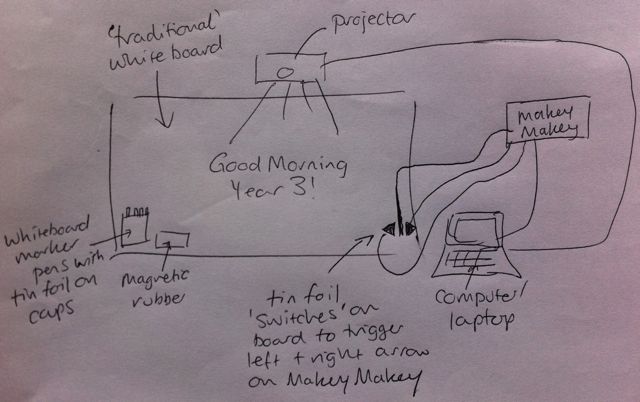Update March 2021
Please note this is a VERY old blog post and the BBC is closing the streams listed below. I mainly listen online to Fip which is not affected.
Have a look here for new streaming addresses and read the notes further down about extracting URLs from PLS files.
https://gist.github.com/bpsib/67089b959e4fa898af69fea59ad74bc3#file-bbc-radio-m3u
Updated April 2016 to include BBC local radio streams
The BBC has changed the way it streams a lot of its radio stations on the internet. You can read more about the changes on the BBC Blog.
One upshot of this was that none of my many RaspberryPi internet radios would pick up BBC stations any more. Yes, I know I can listen to most of them on DAB, but I like to be able to listen to everything in one place.
So here’s an updated list of URLs – these work with the Pimoroni Displayotron3000 Raspberry Pi radio which uses VLC as its player. I’ve not tried them with any of my MPC/MPD-based radios yet.
The nice thing about this list is it includes separate streams for Radio 4 FM and LW, useful if you want to listen to the full-length Yesterday in Parliament, for example. World Service isn’t on this list because I think the old URLs I was using are still working.
(As of Feb 2020, fip can be found at http://icecast.radiofrance.fr/fip-midfi.mp3, Scala Radio at https://stream-mz.planetradio.co.uk/scalahigh.aac)
National stations
BBC Radio 1
http://bbcmedia.ic.llnwd.net/stream/bbcmedia_radio1_mf_p
BBC Radio 1xtra
http://bbcmedia.ic.llnwd.net/stream/bbcmedia_radio1xtra_mf_p
BBC Radio 2
http://bbcmedia.ic.llnwd.net/stream/bbcmedia_radio2_mf_p
BBC Radio 3
http://bbcmedia.ic.llnwd.net/stream/bbcmedia_radio3_mf_p
BBC Radio 4FM
http://bbcmedia.ic.llnwd.net/stream/bbcmedia_radio4fm_mf_p
BBC Radio 4LW
http://bbcmedia.ic.llnwd.net/stream/bbcmedia_radio4lw_mf_p
BBC Radio 4 Extra
http://bbcmedia.ic.llnwd.net/stream/bbcmedia_radio4extra_mf_p
BBC Radio 5 Live
http://bbcmedia.ic.llnwd.net/stream/bbcmedia_radio5live_mf_p
BBC Radio 5 Live Sportsball Extra
http://a.files.bbci.co.uk/media/live/manifesto/audio/simulcast/hls/uk/sbr_high/ak/bbc_radio_five_live_sports_extra.m3u8
BBC Radio 6 Music
http://bbcmedia.ic.llnwd.net/stream/bbcmedia_6music_mf_p
BBC Asian Network
http://bbcmedia.ic.llnwd.net/stream/bbcmedia_asianet_mf_p
BBC World Service UK stream
http://bbcwssc.ic.llnwd.net/stream/bbcwssc_mp1_ws-eieuk
BBC World Service News stream
http://bbcwssc.ic.llnwd.net/stream/bbcwssc_mp1_ws-einws
Nations and regions
Radio Cymru
http://bbcmedia.ic.llnwd.net/stream/bbcmedia_cymru_mf_p
BBC Radio Foyle
http://bbcmedia.ic.llnwd.net/stream/bbcmedia_foyle_mf_p
BBC Radio nan Gàidheal
http://bbcmedia.ic.llnwd.net/stream/bbcmedia_nangaidheal_mf_p
BBC Radio Scotland
http://bbcmedia.ic.llnwd.net/stream/bbcmedia_scotlandfm_mf_p
BBC Radio Ulster
http://bbcmedia.ic.llnwd.net/stream/bbcmedia_ulster_mf_p
BBC Radio Wales
http://bbcmedia.ic.llnwd.net/stream/bbcmedia_walesmw_mf_p
Local radio (all broadcasting exactly the same programme as I compiled this!)
BBC Radio Berkshire
http://bbcmedia.ic.llnwd.net/stream/bbcmedia_lrberk_mf_p
BBC Radio Bristol
http://bbcmedia.ic.llnwd.net/stream/bbcmedia_lrbris_mf_p
BBC Radio Cambridgeshire
http://bbcmedia.ic.llnwd.net/stream/bbcmedia_lrcambs_mf_p
BBC Radio Cornwall
http://bbcmedia.ic.llnwd.net/stream/bbcmedia_lrcorn_mf_p
BBC Coventry & Warwickshire
http://bbcmedia.ic.llnwd.net/stream/bbcmedia_lrwmcandw_mf_p
BBC Radio Cumbria
http://bbcmedia.ic.llnwd.net/stream/bbcmedia_lrcumbria_mf_p
BBC Radio Derby
http://bbcmedia.ic.llnwd.net/stream/bbcmedia_lrderby_mf_p
BBC Radio Devon
http://bbcmedia.ic.llnwd.net/stream/bbcmedia_lrdevon_mf_p
BBC Essex
http://bbcmedia.ic.llnwd.net/stream/bbcmedia_lressex_mf_p
BBC Radio Gloucestershire
http://bbcmedia.ic.llnwd.net/stream/bbcmedia_lrgloucs_mf_p
BBC Radio Guernsey
http://bbcmedia.ic.llnwd.net/stream/bbcmedia_lrguern_mf_p
BBC Hereford & Worcester
http://bbcmedia.ic.llnwd.net/stream/bbcmedia_lrhandw_mf_p
BBC Radio Humberside
http://bbcmedia.ic.llnwd.net/stream/bbcmedia_lrhumber_mf_p
BBC Radio Jersey
http://bbcmedia.ic.llnwd.net/stream/bbcmedia_lrjersey_mf_p
BBC Radio Kent
http://bbcmedia.ic.llnwd.net/stream/bbcmedia_lrkent_mf_p
BBC Radio Lancashire
http://bbcmedia.ic.llnwd.net/stream/bbcmedia_lrlancs_mf_p
BBC Radio Leeds
http://bbcmedia.ic.llnwd.net/stream/bbcmedia_lrleeds_mf_p
BBC Radio Leicester
http://bbcmedia.ic.llnwd.net/stream/bbcmedia_lrleics_mf_p
BBC Radio Lincolnshire
http://bbcmedia.ic.llnwd.net/stream/bbcmedia_lrlincs_mf_p
BBC Radio London
http://bbcmedia.ic.llnwd.net/stream/bbcmedia_lrldn_mf_p
BBC Radio Manchester
http://bbcmedia.ic.llnwd.net/stream/bbcmedia_lrmanc_mf_p
BBC Radio Merseyside
http://bbcmedia.ic.llnwd.net/stream/bbcmedia_lrmersey_mf_p
BBC Newcastle
http://bbcmedia.ic.llnwd.net/stream/bbcmedia_lrnewc_mf_p
BBC Radio Norfolk
http://bbcmedia.ic.llnwd.net/stream/bbcmedia_lrnorfolk_mf_p
BBC Radio Northampton
http://bbcmedia.ic.llnwd.net/stream/bbcmedia_lrnthhnts_mf_p
BBC Radio Nottingham
http://bbcmedia.ic.llnwd.net/stream/bbcmedia_lrnotts_mf_p
BBC Radio Oxford
http://bbcmedia.ic.llnwd.net/stream/bbcmedia_lroxford_mf_p
BBC Radio Sheffield
http://bbcmedia.ic.llnwd.net/stream/bbcmedia_lrsheff_mf_p
BBC Radio Shropshire
http://bbcmedia.ic.llnwd.net/stream/bbcmedia_lrshrops_mf_p
BBC Radio Solent
http://bbcmedia.ic.llnwd.net/stream/bbcmedia_lrsolent_mf_p
BBC Somerset
http://bbcmedia.ic.llnwd.net/stream/bbcmedia_lrsomer_mf_p
BBC Radio Stoke
http://bbcmedia.ic.llnwd.net/stream/bbcmedia_lrsomer_mf_p
BBC Radio Suffolk
http://bbcmedia.ic.llnwd.net/stream/bbcmedia_lrsuffolk_mf_p
BBC Surrey
http://bbcmedia.ic.llnwd.net/stream/bbcmedia_lrsurrey_mf_p
BBC Sussex
http://bbcmedia.ic.llnwd.net/stream/bbcmedia_lrsussex_mf_p
BBC Tees
http://bbcmedia.ic.llnwd.net/stream/bbcmedia_lrtees_mf_p
BBC Three Counties Radio
http://bbcmedia.ic.llnwd.net/stream/bbcmedia_lr3cr_mf_p
BBC Wiltshire
http://bbcmedia.ic.llnwd.net/stream/bbcmedia_lrwilts_mf_p
BBC WM 95.6
http://bbcmedia.ic.llnwd.net/stream/bbcmedia_lrwm_mf_p
BBC Radio York
http://bbcmedia.ic.llnwd.net/stream/bbcmedia_lryork_mf_p
Update, July 2015: Fip has also moved, it’s now at http://audio.scdn.arkena.com/11016/fip-midfi128.mp3 – not sure if there is still a working low bandwidth stream.

